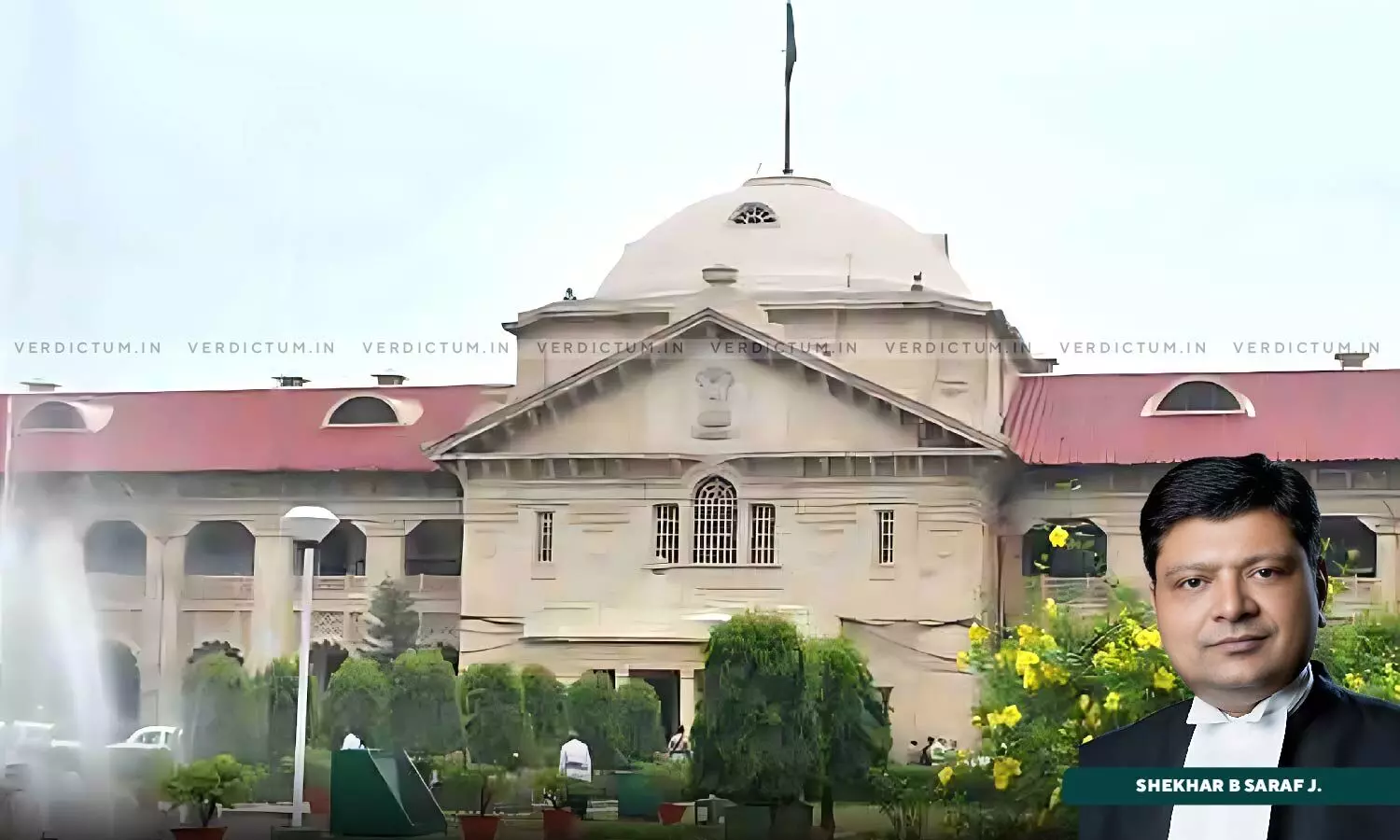
Mere Rejection Of Post-Detention E-Way Bills, Without Cogent Nexus To Intention To Evade Tax, Is Fallacious: Allahabad HC
 |
|The Allahabad High Court held that a penalty cannot be sustained when imposed in the presence of all valid documents and in the absence of any determination to evade tax, even if an e-Way Bill was not generated.
The Court stated that tax evasion was a “serious allegation that necessitates a robust evidentiary basis to withstand legal scrutiny” and held that “mere rejection of post-detention e-Way Bills, without a cogent nexus to intention to evade tax, is fallacious.”
A Sinlge Bench of Justice Shekhar B. Saraf observed, “If penalty is imposed, in the presence of all the valid documents, even if e-Way Bill has not been generated, and in the absence of any determination to evade tax, it cannot be sustained.”
Advocate Ajay Kumar Yadav represented the petitioner, while ACSC Rishi Kumar appeared for the respondents.
The petitioner, an authorized dealer of Steel Authority of India Ltd. (SAIL), purchased a consignment of TMT Bar. The petitioner obtained a private road carrier for transportation, and the tax invoices included the vehicle number. Due to glitches in the e-Way Bill portal, could not be generated by the onset of the transportation of the Good.
The petitioner claimed that the bills were presented during the interception of the goods, but they were not considered. The transportation delay was attributed to the barrier imposed by the local administration on account of Maghi Purnima, Kumbh Mela, 2019. A Show Cause Notice was issued under the Uttar Pradesh Goods and Services Tax Act, 2017 (UPGST Act) following which the petitioner paid the tax and penalty, and goods were released.
Aggrieved by the order of the Assistant Commissioner, Commercial Tax, the petitioner preferred a statutory appeal before the Additional Commissioner, Commercial Tax. The tax liability and penalty was confirmed. The petitioner then preferred a writ petition before the High Court.
The Court examined whether or not there was any actual intent to evade tax on part of the petitioner.
The Court stated that although the petitioner had failed to generate the e-Way Bill on time, the Tax Invoices issued contained all the relevant details including the detail of the vehicle transporting the goods. Morever, the CGST and the SGST were already charged by SAIL. Therefore, there was no intention to evade tax on the part of the petitioner.
The Court remarked, “Mere technical errors, without having any potential financial implications, should not be the grounds for imposition of penalties. The underlying philosophy is to maintain a fair and just tax system, where penalties are proportionate to the gravity of the offense. In the realm of taxation, imposition of penalty serves as a critical measure to ensure compliance with tax laws and regulations.”
The Court set aside the impugned orders and directed a refund of the amount of tax and penalty deposited by the petitioner.
Accordingly, the High Court allowed the writ petition.
Cause Title: M/s Falguni Steels v. State of U.P. & Ors. (2024:AHC:11990)